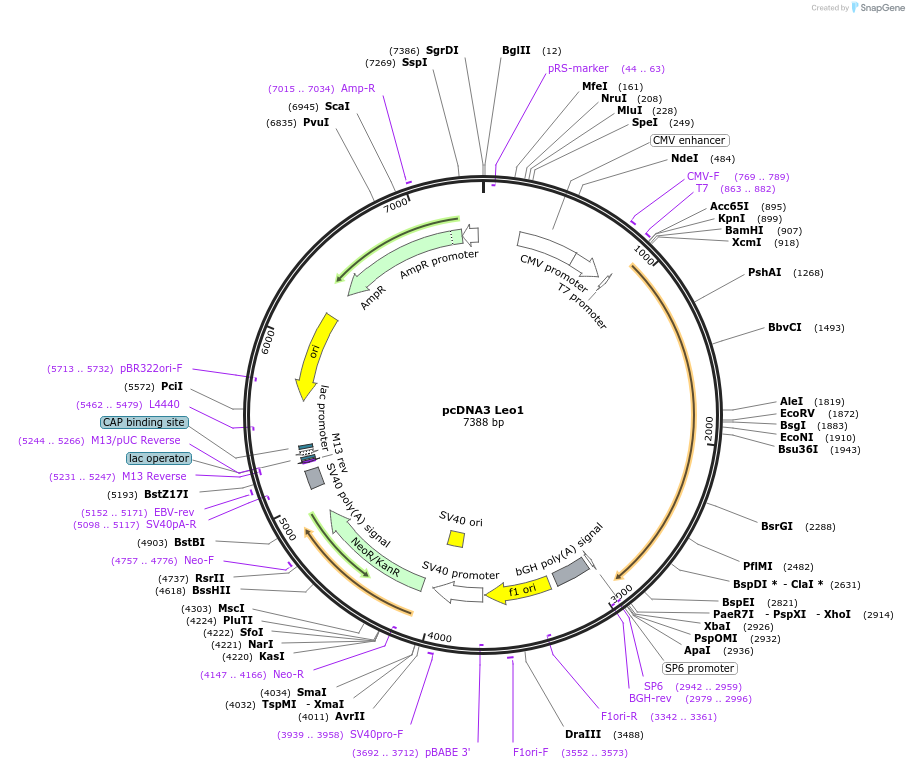-
Depositing Lab
-
Sequence Information
Ordering
| Item | Catalog # | Description | Quantity | Price (USD) | |
|---|---|---|---|---|---|
| Plasmid | 11061 | Standard format: Plasmid sent in bacteria as agar stab | 1 | $89 | |
Backbone
-
Vector backbonepcDNA3
-
Backbone manufacturerInvitrogen
- Backbone size w/o insert (bp) 5400
-
Vector typeMammalian Expression
-
Selectable markersNeomycin (select with G418)
Growth in Bacteria
-
Bacterial Resistance(s)Ampicillin, 100 μg/mL
-
Growth Temperature37°C
-
Growth Strain(s)DH5alpha
-
Copy numberHigh Copy
Gene/Insert
-
Gene/Insert nameLeo1
-
SpeciesH. sapiens (human)
-
Insert Size (bp)2001
-
Entrez GeneLEO1 (a.k.a. RDL)
Cloning Information
- Cloning method Restriction Enzyme
- 5′ cloning site BamHI (not destroyed)
- 3′ cloning site XhoI (not destroyed)
- 5′ sequencing primer T7
- 3′ sequencing primer SP6
- (Common Sequencing Primers)
Terms and Licenses
-
Academic/Nonprofit Terms
-
Industry Terms
- Not Available to Industry
Trademarks:
- Zeocin® is an InvivoGen trademark.
Depositor Comments
Author has deposited insert sequence. Click on "sequence" to view. Cloned using the following primers 5' CG GGA TCC ATG GCG GAT ATG GAG GAT CTC 3' and 5' CCG CTC GAG ATC ATC ATC TTC TTC CTC TTC ATC G 3'
These plasmids were created by your colleagues. Please acknowledge the Principal Investigator, cite the article in which the plasmids were described, and include Addgene in the Materials and Methods of your future publications.
-
For your Materials & Methods section:
pcDNA3 Leo1 was a gift from Matthew Meyerson (Addgene plasmid # 11061 ; http://n2t.net/addgene:11061 ; RRID:Addgene_11061) -
For your References section:
The parafibromin tumor suppressor protein is part of a human Paf1 complex. Rozenblatt-Rosen O, Hughes CM, Nannepaga SJ, Shanmugam KS, Copeland TD, Guszczynski T, Resau JH, Meyerson M. Mol Cell Biol. 2005 Jan . 25(2):612-20. 10.1128/MCB.25.2.612-620.2005 PubMed 15632063



